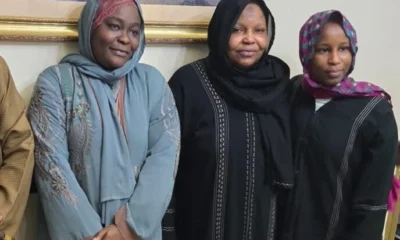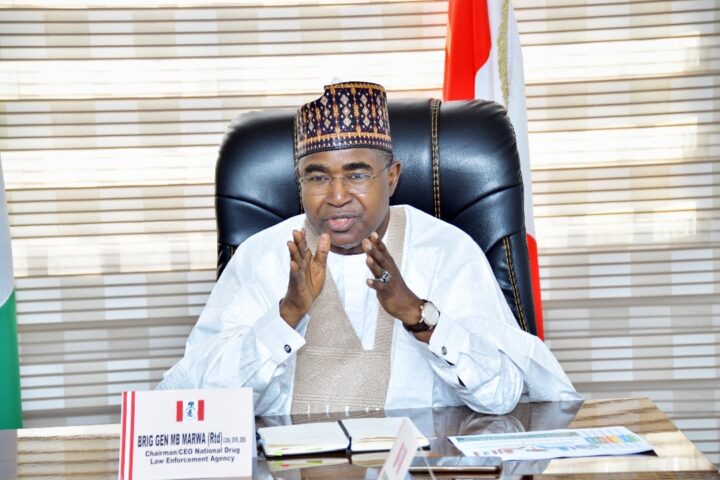The National Assembly has said it will be difficult to repeal the 1999 Constitution and enact a new law for Nigeria, noting that there are stringent conditions for achieving it.
The Deputy President of the Senate and Chairman of the Senate’s Ad Hoc Committee on Constitution Review, Senator Ovie Omo-Agege, said, “It is not impossible but it is difficult.”
He also said while several socio-political and cultural groups, as well as prominent Nigerians, were clamouring for a new constitution, the parliament had yet to receive a memorandum seeking to amend Section 9 of the Constitution.
Omo-Agege made this known while featuring on Politics Today, a current affairs programme on Channels Television monitored by one of our correspondents in Abuja on Thursday.
The Deputy Senate President was asked about the possibility of having a new constitution as the 1999 Constitution in operation had been criticized as a fraud imposed by the military on the country.
He said, “Frankly, this very issue has become topical of late. For some of us, we can accept and tolerate that from people who don’t know. But it becomes a little bit perplexing and annoying, in fact, when you hear people who ought to know and indeed do know that we do not have the powers to write a new constitution (call for it). The only power we have is to alter the constitution and that is what the extant legal order provides for.
“The framers of the constitution- and I was not one of them – in their wisdom decided that it would be best to have incremental alterations as opposed to a total overhaul; a total rewrite. And that is why they provided under Section 9 of the Constitution on how to go about this. What the law says is that we can alter any provision of the Constitution. It does not say we can alter all of the provisions of the constitution. And the provision sets out the methodology and the mode for doing just that.
“Don’t forget: those who asked us to do a rewrite, they forget that in Section 9, for you to do a rewrite of a new Constitution, you need to amend Section 9 of the (1999) Constitution. And for you to amend Section 9 of the Constitution, you require four-fifths – in the Senate, that is about 88 senators, of the 109; and 288 of the 360 members of the House of Reps – just for you to amend that Section 9 itself.”
Omo-Agege also stated that to amend Section 9, a bill had to be sponsored to seek the alteration.
“As I speak to you, we have received more than 350 memoranda on the amendment of the constitution, and not one – not one – is requesting an amendment of Section 9 of the Constitution. That is probably they know how difficult it is to muster 88 votes out of 109. To even muster two-thirds of the votes is almost impossible, not to talk about four-fifths of the Senate and the House of Representatives. But the bottom line is this: under the extant constitution, the only thing we are permitted to do is increment amendment or alteration, and this is not new.”
He said those who were agitating for a new constitution should meet with their lawmakers so that areas they did not like would be amended.
The Deputy Senate President, however, stated that only amendments that would maintain the unity of the country would scale through.
He also said the President, Major General Muhammadu Buhari (retd.), would sign any bill that did not tamper with the unity of the country.
In Abuja, there was a call for a new constitution at the opening of the national public hearing of the Senate committee on the review of the 1999 Constitution.
But Omo-Agege stated, “Specifically, Section 9 of the constitution empowers the National Assembly to alter the provisions of the constitution and prescribes the manner in which it is to be done.
“Unfortunately, it does not make a similar provision or provide a mechanism for replacing or re-writing an entirely new constitution.
“To embark on any process without prior alteration of Section 9 of the 1999 Constitution to provide the mode through which an entirely new constitution could be made, would amount to a gross violation of our oath of allegiance to the constitution.”
However, a former Minister of Education, Oby Ezekwesili, who represented her group, Fixed Politics Initiative, at the forum insisted that the production of a brand new constitution remained the only way to address the nation’s social, political, and economic crisis.
On the occasion, stakeholders called for full financial autonomy for local governments, state legislatures, and the judiciary.
There were also calls for the creation of a ministry of chieftaincy affairs and the assignment of roles to traditional rulers in the constitution.

 BIG STORY3 days ago
BIG STORY3 days ago
 BIG STORY2 days ago
BIG STORY2 days ago
 BIG STORY2 days ago
BIG STORY2 days ago
 BIG STORY1 day ago
BIG STORY1 day ago
 BIG STORY5 days ago
BIG STORY5 days ago
 BIG STORY1 day ago
BIG STORY1 day ago
 BIG STORY2 days ago
BIG STORY2 days ago
 BIG STORY2 days ago
BIG STORY2 days ago
























